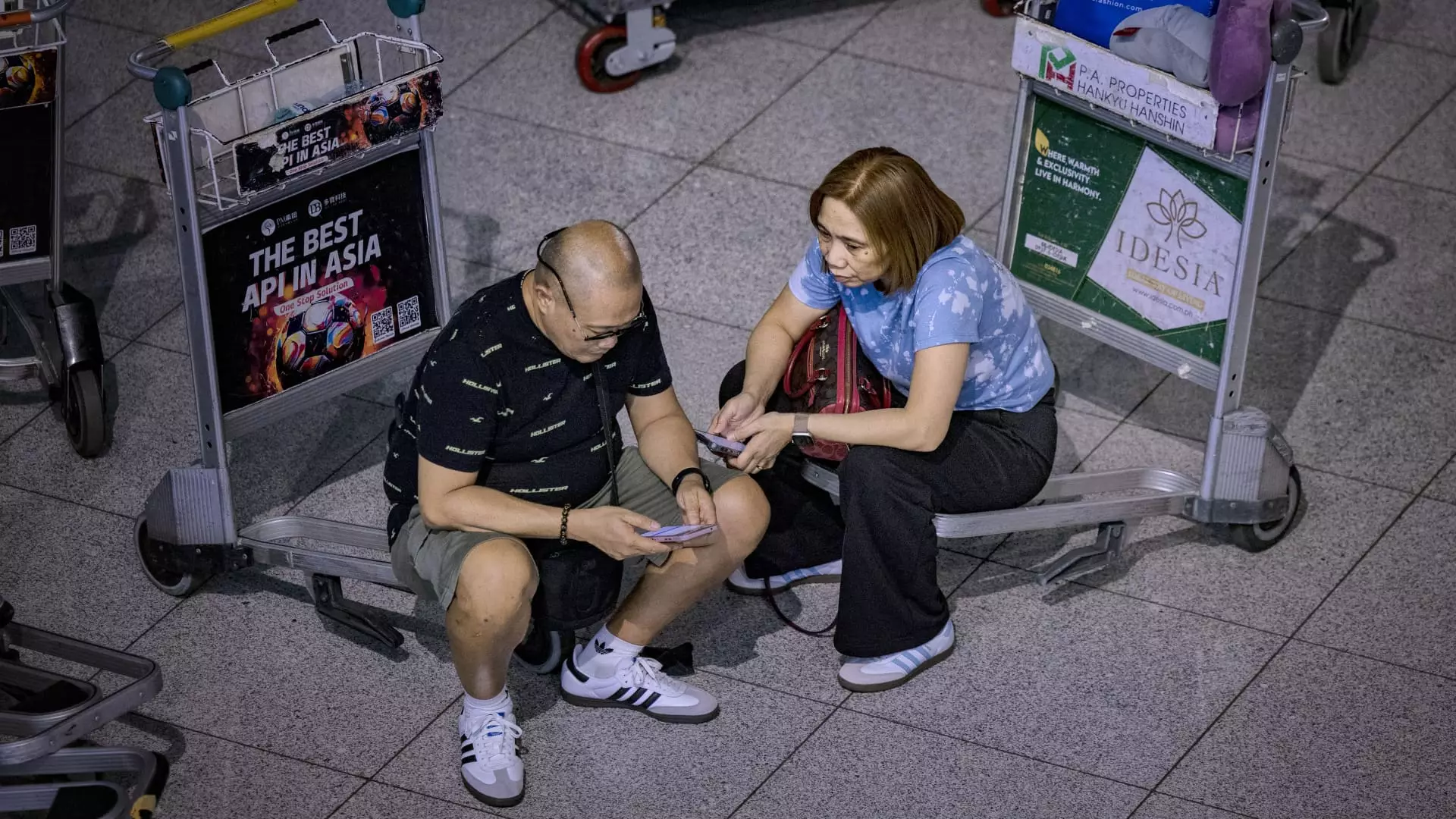An unprecedented IT outage on Friday caused major disruptions in global operations, affecting several airlines and resulting in halted flights, delays, and service disruptions. The outage was linked to a technical update by cybersecurity giant CrowdStrike, leaving organizations like Microsoft scrambling to restore apps and services. Flight update monitors at airports around the world displayed the infamous blue screen of death, indicating a Microsoft system error. This disruption impacted not only individual users but also large institutions like banks, stock exchanges, and airports.
Over 38,000 flights were delayed globally, with about 9,200 of those delays affecting the United States. Additionally, more than 4,200 flights were canceled, with around 2,650 of them being U.S. flights. The disruption caused chaos during the peak holiday season and affected various sectors, leading to a significant impact on air travel. U.S. Secretary of Transportation Pete Buttigieg expressed his expectation that transportation delays would be smoothed out and back to normal by Saturday as the issue was being addressed.
Airlines across Europe, the Middle East, the Americas, and Asia issued updates regarding the suspected extent of the impact on their flight schedules and services. American Airlines, Delta, and United informed passengers of delays and cancellations, with some flight departures resuming. Delta and United anticipated delays and cancellations through Friday and provided waivers for customers to change their travel plans. Despite the disruptions, passengers like Colby Black remained calm and understanding of the situation.
European carriers like KLM and Air France faced challenges due to the IT outage, resulting in flight delays and cancellations. KLM managed to resolve most of its IT issues but anticipated ongoing disruption into the weekend, with possible cancellations. Lufthansa was slightly affected by the outage, with significant impacts on specific routes. Low-cost carrier Eurowings announced plans to operate most of its flights, with domestic routes experiencing the highest number of cancellations. British Airways and Virgin Atlantic also warned of flight disruptions in the region.
The global IT outage affected airport systems worldwide, with self-check-in systems temporarily going down at several airports, including Taoyuan International Airport, Changi Airport, and Hong Kong International Airport. Mainland Chinese airlines like Air China and China Southern remained unaffected as they operate on a different system. London airports Gatwick and Heathrow experienced issues with airlines’ check-in systems and security, leading to delays and disruptions in airport operations.
The unprecedented global IT outage had far-reaching consequences on the aviation industry, causing major disruptions in air travel worldwide. The impact was felt by airlines, airports, and passengers, leading to delays, cancellations, and operational challenges. As organizations worked to restore normalcy to their systems, the aviation sector faced a challenging period, with ongoing disruptions expected to persist. The incident serves as a reminder of the critical role that technology plays in the modern airline industry and the importance of robust IT systems to ensure the smooth operation of global air travel.

